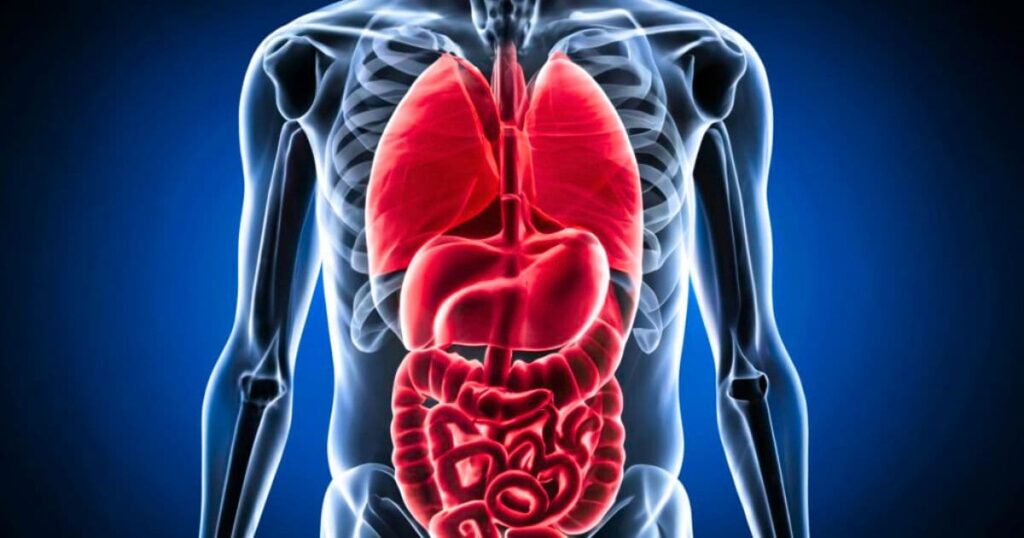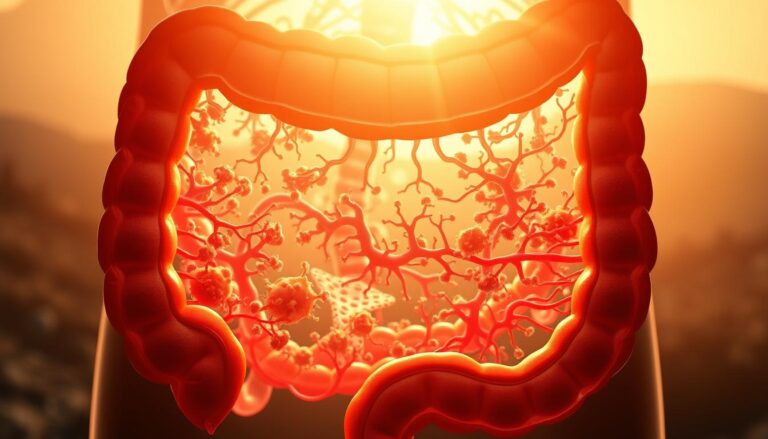In its never ending quest for health and adaptation the human body is an incredible feat of resilience.
The possible advantages of intermittent fasting IF, a dietary pattern that alternates between eating and fasting intervals have been highlighted by recent studies.

Evidence is mounting that IF may be useful in the treatment of liver illnesses, including hepatitis and cancer in addition to its well-known benefits for weight control. The intriguing link between IF and liver health as well as the possibility of avoiding these severe diseases, is discussed in this article.
Exploring the Benefits of Intermittent Fasting
Intermittent fasting is more of a way of eating than a strict diet plan it involves going without food for long stretches of time, followed by longer intervals of fasting. Various IF protocols exist with popular approaches being the 16/8 method fasting for 16 hours and limiting eating to an 8-hour window.
The 5:2 method eating normally for 5 days and reducing calories on 2 non-consecutive days, and alternate day fasting fasting every other day. The fundamental idea is the same regardless of the approach: giving the body a respite from continuous food consumption.
A metabolic change occurs in the body during fasting. Its principal source of fuel switches from glucose derived from carbs to ketones, created by the breakdown of fat storage. This metabolic transformation known as ketosis, is considered to be responsible for many of the possible health advantages linked to IF.
The Link Between Intermittent Fasting and Liver Health
The liver a powerful organ responsible for detoxification, metabolism, and protein synthesis, plays a key role in sustaining general health.
Chronic liver illnesses including hepatitis and liver cancer, may greatly influence its function and have catastrophic implications. While the study on IF and liver health is still underway early studies show a possible protective effect:

Reduced Inflammation:
Chronic inflammation is a feature of many liver illnesses, including hepatitis and non alcoholic fatty liver disease NAFLD a risk factor for liver cancer. Studies show IF may help lower inflammatory indicators in the body perhaps reducing the course of liver damage.
In addition, intermittent fasting has been shown to decrease oxidative stress in the liver which can further protect against liver damage.
By reducing inflammation and oxidative stress, IF may play a role in preventing the progression of liver diseases and promoting overall liver health. Incorporating intermittent fasting into a healthy lifestyle may be a beneficial strategy for those looking to improve their liver function and reduce the risk of liver-related complications.
Enhanced Autophagy:
Autophagy is a cellular clean up process where damaged or defective cells are recycled. Research reveals IF may stimulate autophagy in the liver, increasing the clearance of damaged cells and perhaps avoiding their development into malignant ones.
This enhanced autophagy process could potentially play a role in preventing liver diseases and promoting overall liver health.
By promoting the body’s natural self cleaning mechanisms intermittent fasting may help reduce the risk of liver cancer and other liver related conditions. Further research is needed to fully understand the impact of intermittent fasting on autophagy and liver health.
Improved Metabolic Regulation:
Excess fat buildup in the liver may lead to NAFLD, a risk factor for liver cancer. IF has been proven to enhance insulin sensitivity and boost fat burning, possibly decreasing the strain on the liver and lowering the risk of NAFLD.
Additionally intermittent fasting has been shown to reduce inflammation in the body, which is another key factor in the development of NAFLD.
By improving metabolic regulation through IF, individuals may also see improvements in their overall liver health and reduce their risk of developing liver cancer. It is important to consult with a healthcare provider before starting any new diet or fasting regimen to ensure it is safe and appropriate for individual health needs.
Reduced oxidative stress:
Free radicals, unstable chemicals that destroy cells, contribute to the development of several illnesses, including liver cancer. IF may help minimize oxidative stress by reducing the generation of free radicals and increasing antioxidant defenses.
This can ultimately lead to a lower risk of developing liver cancer and other diseases associated with high levels of oxidative stress.
By incorporating intermittent fasting into one’s lifestyle individuals may be able to improve their overall health and well-being by protecting their cells from damage caused by free radicals. Additionally, reducing oxidative stress through IF may also slow down the aging process and promote longevity.
It’s crucial to understand that much of the research on IF and liver function has been performed on animals. While the results are intriguing further human research is required to fully understand the potential advantages and design safe and effective methods for patients with pre-existing liver diseases.
Exploring the Different Intermittent Fasting Protocols
Several IF protocols exist, each with its own benefits and downsides. Here’s a quick review of several common methods:
- 16/8 Method: This entails confining meals to an 8-hour window each day, with the remaining 16 hours devoted to fasting. This is a common and reasonably easy to-follow procedure.
- 5:2 Method: This strategy entails eating regularly for five days of the week and decreasing calorie intake approximately 500–600 calories on two non-consecutive days.
- Alternate Day Fasting: This strategy entails alternating days of eating regularly with days of total fasting drinking just water and calorie-free drinks .
Choosing the Right Protocol:
The ideal IF procedure varies depending on individual tastes and health situations. Consulting a healthcare expert or certified dietician is vital before beginning any new dietary program particularly if you have pre existing health issues. They can help you find a safe and successful method that corresponds with your specific requirements.

Safety Considerations and Potential Side Effects
While typically safe for healthy people, IF may produce significant negative effects particularly during the first adaptation phase. These may include:
Hunger pangs Fatigue Irritability Difficulty concentrating Headaches
These adverse effects normally decrease after a few days or weeks as the body adapts to the new dietary routine. However if the side effects are severe or chronic, it’s vital to visit a healthcare practitioner.
Important Considerations:
Pre-existing medical diseases: Individuals with specific medical diseases such as diabetes, eating disorders or renal disease ?
Intermittent Fasting and Specific Liver Conditions
While the study is continuing, here’s a look into how IF can affect various liver conditions:
Hepatitis: Hepatitis refers to inflammation of the liver caused by viruses, toxins, or autoimmune diseases. While IF isn’t a treatment for hepatitis, research shows it may help lower inflammation and maybe halt disease development. However, it’s vital to contact a doctor before applying for IF with any approved treatment plan.
Non-alcoholic Fatty Liver Disease NAFLD: NAFLD is a frequent disorder where excess fat accumulates in the liver. Studies show IF might enhance insulin sensitivity and boost fat burning, possibly decreasing fat buildup in the liver and lowering the risk of NAFLD progression to more serious liver disorders.
Liver Cancer: Liver cancer is a complicated illness with numerous origins. Research shows IF may have a role in preventing liver cancer by lowering inflammation and oxidative stress and increasing cellular repair processes. However further study is necessary to understand its decisive function in the prevention and treatment of liver cancer.
Important Note: Intermittent fasting should never be regarded as a substitute for normal medical therapy for liver problems. It’s vital to see a doctor before adopting IF, particularly if you have a confirmed liver issue. They can advise on the safety and possible advantages of your unique setting.
Optimizing Intermittent Fasting for Liver Health
While the data is ongoing, here are some ideas to possibly enhance the advantages of IF for liver health:
- Prioritize Nutrient-Dense Foods: During meal windows, concentrate on complete, unprocessed foods rich in important vitamins, minerals, and antioxidants. These nutrients promote general health and liver function.
- Stay Hydrated: Adequate water consumption is vital during fasting times to aid in detoxification and general wellness.
- Consider Time-Restricted Feeding: Restricting meals to set hours, like the 16/8 approach, may be especially advantageous for liver health.
- Listen to your body: Pay attention to how you feel during fasting times. If you encounter significant adverse effects, alter the procedure or quit entirely.
Disclaimer:This material is for educational purposes only and should not be taken as medical advice. Always contact a healthcare expert before making any dietary modifications, particularly if you have pre-existing health issues.
Frequently Asked Questions FAQs
Q: Is intermittent fasting safe for everyone?
A: While typically safe for healthy people, IF may not be suitable for everyone. Consulting a healthcare specialist before beginning IF is vital particularly if you have pre-existing health concerns, including diabetes, eating disorders, or renal illness.
Q: Can I take drugs during intermittent fasting?
A: It depends on the drug and the particular IF regimen. Consulting your doctor is vital to ensuring optimal drug scheduling and minimizing any interactions.
Q: Will I lose weight with intermittent fasting?
A: Weight reduction may be a side effect of IF, but it’s not the only objective. The major objective for liver health should be minimizing inflammation and metabolic stress. Weight reduction may be a favorable outcome of these adjustments.
Q: Are there any nutrients I should take when intermittent fasting?
A good diet rich in whole foods should provide the most necessary elements. However, contacting a healthcare practitioner could be a good way to establish whether specialized supplements like electrolytes are essential.

Conclusion
Intermittent fasting has promise as a possible technique to enhance liver health. While research is continuing, the potential advantages of decreased inflammation better metabolic control, and greater cellular repair mechanisms are exciting.
However, it’s vital to approach IF with caution contacting a healthcare practitioner to ensure it corresponds with your health requirements and doesn’t conflict with any current treatment programs.
Remember, IF is a nutritional strategy, not a miraculous panacea. Combining it with a healthy lifestyle rich in natural foods frequent exercise, and appropriate sleep is vital to enhancing liver function and overall well-being disease should visit a healthcare professional.





